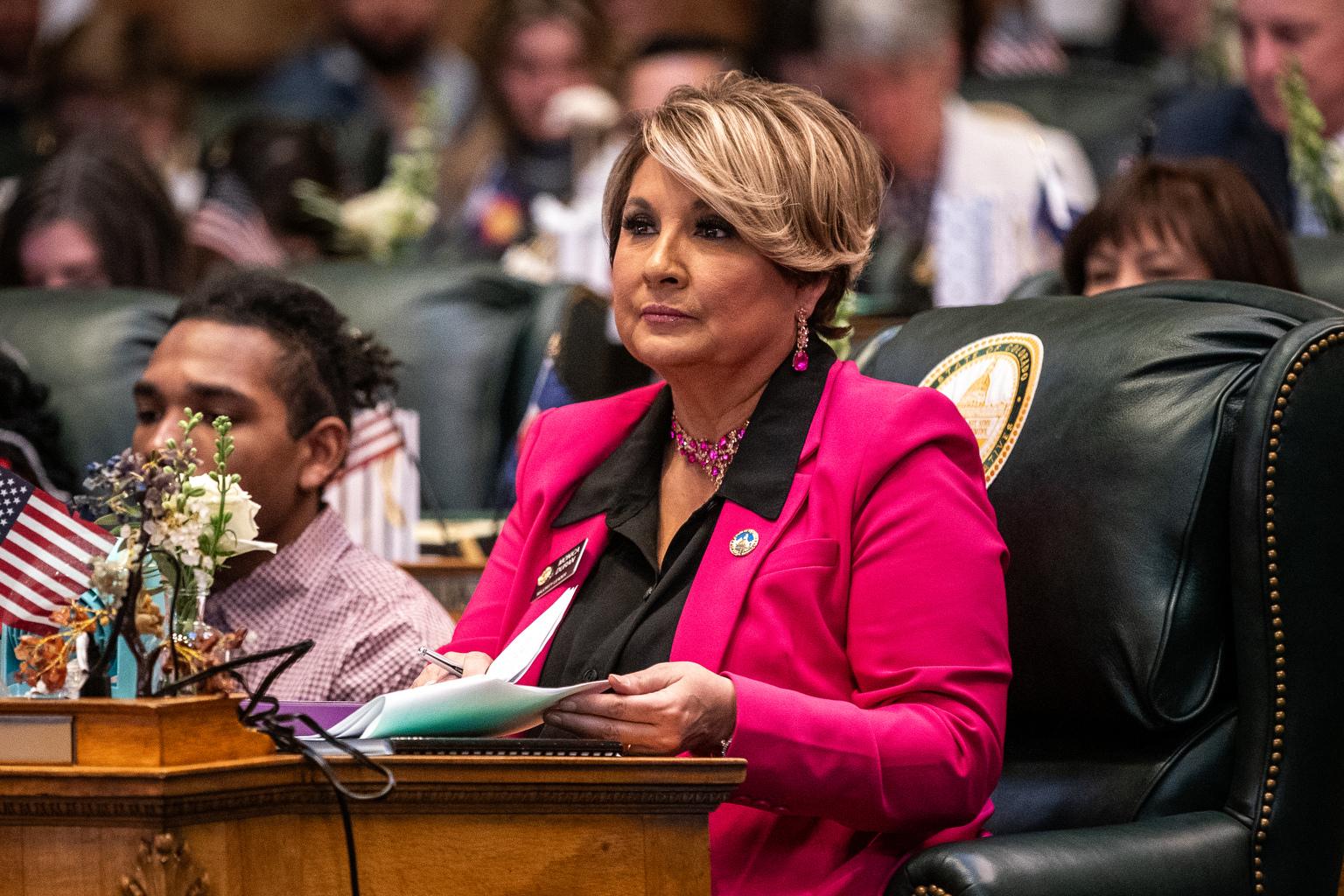A growing number of Colorado counties have declared themselves as Second Amendment sanctuaries in response to a so-called red flag bill making its way through the state Legislature. Custer, Fremont, Montezuma, Otero and Weld counties have said they would not enforce the legislation should it become law. Teller County has also denounced the measure, although commissioners there did not claim a "sanctuary" title.
House Bill 19-1177 would allow law enforcement to temporarily remove firearms from a person if that person is determined to be a danger to him- or her- self or others. Family members or law enforcement would first have to petition a judge to issue an extreme risk protection order to have the weapon or weapons removed. If approved, that person would be required to surrender all firearms for up to two weeks. A hearing would then be held to decide if there is enough evidence for law enforcement to keep the guns for a longer period of time. Under the bill, the seizure could last as long as 364 days but can be terminated at any time pending another hearing and petition from the gun owner.
Montezuma County Commissioner Larry Don Suckla said the bill, "makes a person guilty until proven innocent. That breaks the Constitution and is not a law to follow."
On Monday, the bill passed the House. It is now headed to the Senate.
Critics of the bill, also known as an Extreme Risk Protection Order (ERPO), have said it is unconstitutional.
In a statement on Facebook, the Custer County Sheriff's Office said the bill, "is in direct conflict with provisions of due process, as outlined in the 4th Amendment, and contradicts the right to bear arms." Officials declared the county as a sanctuary Feb. 28.
Commissioners in Montezuma County denounced the bill on the same day. According to the Durango Herald, Commissioner Larry Don Suckla said by allowing guns to be seized, the bill, "makes a person guilty until proven innocent. That breaks the Constitution and is not a law to follow." The paper said it is doubtful the resolution would carry any legal authority or be enforced by Sheriff Steve Nowlin, who refused to sign the resolution.
In Fremont County, commissioners cited citizens' rights to be secure against unreasonable search and seizure as well the right to possess private property. That county announced its sanctuary status Feb. 26.
For commissioners in Weld County, one main issue is a storage facility for weapons seized by law enforcement. Officials said they would not put money toward the building.
Chaffee County Sheriff Jason Spezze also criticized the bill. His county has not made a sanctuary declaration, but in a news release, Spezze said he supported a similar bill last year which did not pass the general assembly. This year, though, he said he can't support the measure.
"There are no provisions in limiting the scope of the search for weapons," Spezze said.
Nancy VanDeMark, interim president and CEO for Mental Health Colorado, said the ERPO bill is a measure that will save lives, adding that more than half of all suicides in Colorado involve a firearm.
He also has concerns that the bill could be abused by family and close associates of a respondent. "What is to stop persons with bad intent from filing false accusations or false information to seek a personal vendetta against another?" he asked.
Another concern, Spezze said, is that the bill lacks funding for additional mental health resources.
"I have often said my biggest responsibility is ensuring the safety of our citizens and my biggest fear is that I have not done everything I could have done if something tragic happened and I could have prevented it," Spezze wrote.
El Paso County Sheriff Bill Elder echoed those concerns about supporting someone in a mental health crisis, saying the bill "does nothing to address the underlying mental health issue."
"It targets the method or tool used," he said. "If you are just taking away the method or tool, the core issue still exists."
Elder plans to resist the legislation in its current and subsequent forms. El Paso County Commissioners are set to discuss the issue March 12.
The advocacy organization Mental Health Colorado agrees that the state needs to allocate more funds toward mental health centers and services. A national study released in 2017 found that mental health care providers are few and far between, hard to pay for and often make less money than other physicians. According to the report, mental health providers in Colorado get paid 40 percent less than physical health providers and the state of Colorado ranks toward the bottom of states when examined for the number of patients required to go out of network for mental health care.
Nancy VanDeMark, interim president and CEO for Mental Health Colorado, said the ERPO bill is a measure that will save lives, adding that more than half of all suicides in Colorado involve a firearm.
"We have a number of things that we should be doing to make sure that people gain access to care in order to prevent deaths," she said. "But we believe that removing guns from people who are high risk for some sort of danger to themselves or others is a first step in saving a life."
VanDeMark wouldn't comment on specific reasons given by the counties but said her organization is discouraged that local communities are not supporting the proposal.
"We're very concerned about, in particular, the residents of these counties getting the message that their lives aren't worth enough to pass legislation that is likely to save lives based on experiences in other states," she said.
She referenced Connecticut as an example.
"Connecticut has had research on their implementation of their Extreme Risk Protection Order legislation and what they've found is that lives were saved a result of these protection orders," she said. "The data that we've seen estimates that to be in the range of for every 10 to 20 protection orders issued that at least one life is saved."
VanDeMark said she has no reason to believe the bill won't pass, despite the growing number of sanctuary resolutions.
There are 14 states with similar bills currently signed into law. According to The Trace, which defines itself as an independent, nonpartisan, nonprofit newsroom dedicated to reporting on gun violence in America, an additional 25 states have similar measures in front of lawmakers this session.









